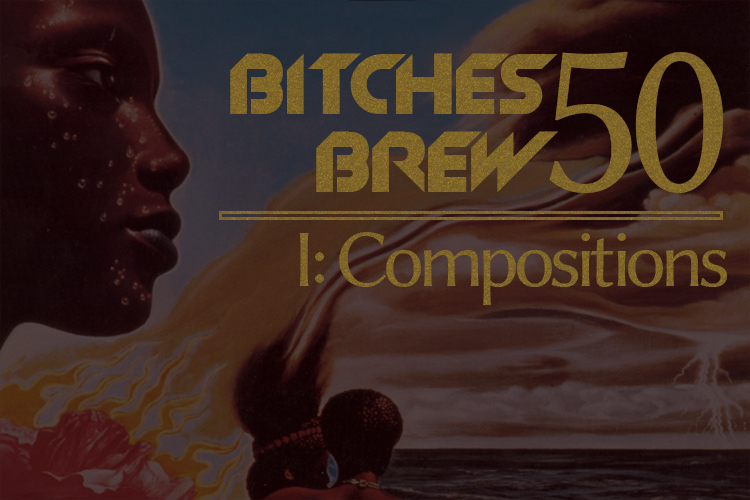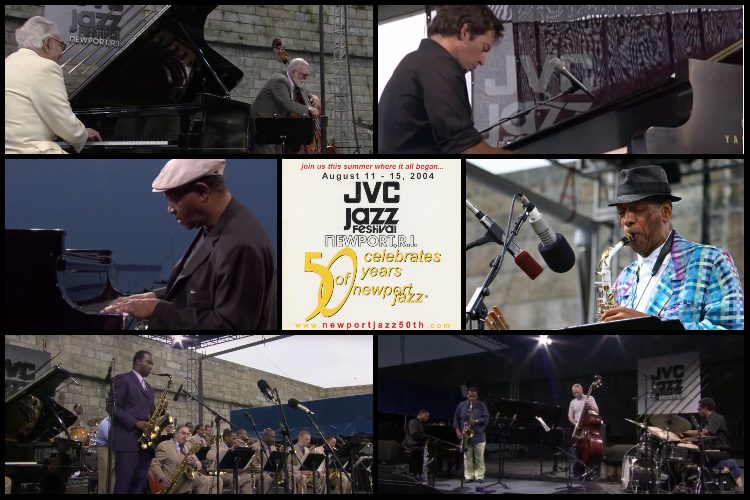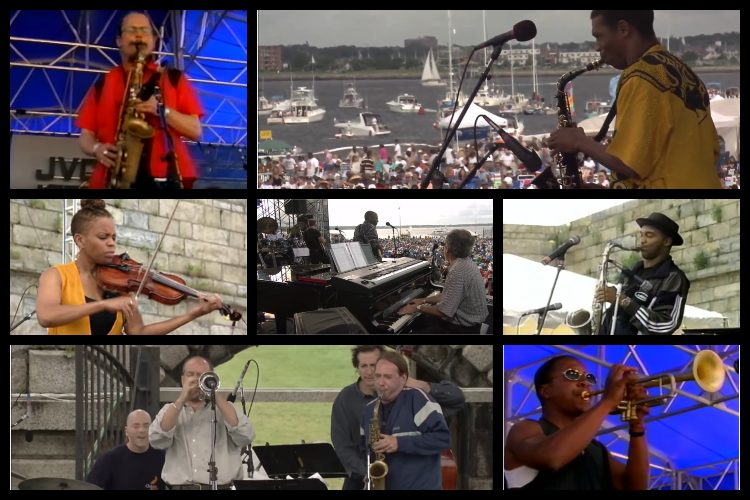Miles Davis’ Bitches Brew 50th Anniversary Celebration- Part One: The Compositions
|
Getting your Trinity Audio player ready...
|
On March 30, 1970, Miles Davis shocked the world with his groundbreaking Bitches Brew (Columbia Records, 1970). Although the trumpeter had been increasingly trending towards merging jazz with rock since at least Miles in The Sky (Columbia Records, 1968), Brew destroyed any divide between the two. At the time, some close-minded critics accused him of “selling out.” While it would prove commercially fruitful, going platinum by 2003, substantively it is so much more than just commercial appeal. As Davis noted in his autobiography, the work was “the way to the future” and a “necessary… change of course.” It ultimately laid the groundwork for innumerable developments in music to come, including that categorized by some as progressive rock, psychedelic, trip-hop, ambient, and jazz.
This is the first of our four-part series celebrating the landmark release’s legacy on its Fiftieth Anniversary. Follow-up pieces will showcase the production techniques utilized, its influence on music some would put in the “jazz” realm, and on those outside of that category. Each adopts the list format and follows two general guidelines: that the artist presented still performs today, and that they never collaborated with Miles. The latter of these limitations is not to minimize the brilliant continued contributions of his bandmates – Wayne Shorter, Bennie Maupin, Chick Corea, John McLaughlin, Dave Holland, Lenny White, Jack Dejohnette, Billy Cobham, Harvey Brooks, and Airto Moreira – but rather to emphasize the recording’s impact outside of his direct sphere of influence.
This Chapter examines subsequent artists’ tributes or “covers” of the six songs on Brew. Its purpose is to both further appreciation of the underlying compositions as well as show their openness to fit other stylistic approaches.
“Pharaoh’s Dance” – Charles Pillow Large Ensemble, Electric Miles (Summit Records, 2018)
Penned by keyboardist Joe Zawinul, “Pharoah’s Dance” is one of two songs on the album not composed by the bandleader. Even so, it was still effectively rewritten by Miles through the arrangement by him and producer Teo Macero. Their changes were so significant that Zawinul later remarked that the final version “ sounded like a new piece of music.” Among the revisions was heavy – seventeen – tape edits, including its famous stop-start opening theme, which was entirely constructed during postproduction. They also added many effects then uncommon to the recorded trumpet – echo, reverb and slap delays. The result is the sound of desolation among chaotic surroundings.
Woodwind player Charles Pillow attempts to recast the piece to fit the modern big band. Interestingly, on his version, he chooses to remove some of Miles’ and Teo’s more unusual additions without losing their general concept. Not as exotic as the original, it is still much edgier and more modern than most large ensemble recordings. Solos are provided by Pillow on alto sax and Tim Hagans on trumpet. The rest of the band includes Colin Gordon, Luke Norris, CJ Ziarniak, and Karl Stabnau on woodwinds, Michael Davis, Abe Nouri, and Jack Courtright on trombone, Gabe Ramos on bass trombone, Tony Kadleck, Charlie Carr, and Clay Jenkins on trumpet, Julian Garvue on electric piano, and Chuck Bergeron on electric bass.
“Bitches Brew” – Yesterdays Universe: Prepare for a New Yesterday, Volume 1, Otis Jackson Jr. Trio (Stone’s Throw Records, 2007)
The title track begins with a heavy and dark aura and blasts of Miles’ horn throughout. As Carlos Santana describes it in the fantastic documentary Miles Davis: Birth of the Cool (Abramorama, 2019), it is the sound of a lone trumpeter in the middle of New York City at three o’clock in the morning with his tone bouncing against an urban Grand Canyon of buildings. It too is a heavily edited track, with various parts rearranged to create new themes. This is particularly apparent with a cut and re-looped trumpet theme which appears throughout.
The Otis Jackson Jr trio is a misnomer as it consists of only one musician: hip hop and electronic artist Madlib. He is a multi-instrumentalist perhaps best known for his “invasion” of Blue Note Records’ discography on Shades of Blue (Blue Note Records, 2003) or his collaborations with rapper MF Doom. Like much of his music, Madlib does not stay neatly confined to a set style or type. Just as the initial version of “Bitches Brew” relied on the remixing of sounds, as a DJ, he cuts and re-pieces parts of music together to create a new whole. Elements of Miles’ version are evidenced throughout, but it often sounds markedly different.
“Yeah” (Spanish Key)- Strictly Turntablized – DJ Krush (Mo Wax, 1994)
At various times throughout his life, Davis was inspired by Iberian culture, as reflected on not just his masterpiece Sketches of Spain (Columbia Records, 1960) but also Kind of Blue (Columbia Records (1959)’s “Flamenco Sketches.” In its utilization of a Phrygian mode, “Spanish Key” continued his study of these styles. The song is focused around bandmembers musical cues to steer between musical sections, a technique he also used on “Flamenco Sketches.” The piece is groovy and unrelenting with driving percussion and bassline guiding the band.
DJ Krush is a producer, often considered a pioneer of Japanese hip hop. He has regularly refused to identify with any particular genre. The choice of “Yeah” as a representative “cover” for this list is a bit inappropriate as it is not one at all. Technically, it merely samples Davis’ rendition. However, its core relies upon the older piece. Although he reshapes it into a new environment, the underlying composition would lack a base without the original.
“John McLaughlin” – Asiento or Agemo – Animation (Rare Noise Records, 2011/2012)
“John McLaughlin” is, of course, named after Brew’s guitarist, who himself has had a legendary career with bands including the Mahavishnu Orchestra and Shakti. The piece begins with a solo by its namesake after which the rest of the group joins into the groove. Interestingly, it was not initially intended to be a track on the album. Instead, it began life as an outtake before morphing into a distinct song. It is also the only one in which Miles does not perform.
Animation was a band formed in 1998 by Tim Hagans (see above) and the late Bob Belden. The initial concept behind it was to meld hard bop with drum n’ bass music. Asciento (Rare Noise Records, 2011) reworked the entirety of Bitches Brew to fit this construct and a follow-up, Agemo, provided various remixes and binaural versions of its predecessor. (Rare Noise Records, 2012). Here, the group features keyboardist Scott Kinsey of TribalTech, drummer Guy Licata of Method of Defiance (with Bill Laswell), and the incredible turntablist DJ Logic. Holding down the bass is Matthew Garrison who, himself is on three of McLaughlin’s albums, in addition to the fantastic In Movement (ECM Records, 2017) with Jack Dejohnette and Ravi Coltrane. While the group presents different instrumentation – for one, there is no guitarist – and concept than the original, it retains its essence.
“Miles Runs the Voodoo Down” – Witches Stew, Lettuce (Self-produced, 2017)
Along with Sly and the Family Stone and James Brown, Davis was heavily influenced in the 1960s and early 1970s by Jimi Hendrix. “Mademoiselle Mabry” on Filles de Kilimanjaro (Columbia Records, 1969) was built off of the guitarist’s “Wind Cries Mary.” In a similar vein, “Miles Runs the Voodoo Down” was named in reference to the guitarist’s “Voodoo Chile.” It is one of the masterwork’s least edited pieces. It also took the longest to record. The piece starts with a slow but funky rhythm by Don Alias on drumset which guides the entire song, leaving room for solos including a subdued trumpet and keyboard pyrotechnics along the way.
Comprised of keyboardist Nigel Hall, drummer Adam Deitch, guitarist Adam Smirnoff, bassist Erick Coomes, trumpeter Eric Bloom, and saxophonist Ryan Zoidis, Lettuce began life as a funk band. Over time, it morphed to pick up other styles, including jazz, soul, avant-garde, and hip-hop. With Witches Stew, a live album consisting entirely of compositions from Miles’ electric years, they forged into the psychedelic as well. In some ways, their version is even more exotic, putting the undergirding rhythm more into the background and sonic effects to the fore.
“Sanctuary” – Evocación – Raynald Colom (The Room BCN, 2009)
The second piece on Brew not written by Davis, “Sanctuary” was penned by the great Wayne Shorter. Of course, the saxophonist also wrote much of the music for the Second Great Quintet, which predated the album’s sessions. It is the recording’s free-tempo ballad, slow and expressive while seemingly suppressing something murkier beneath it. Hauntingly beautiful, simultaneously familiar and foreign.
Growing up in Spain, trumpeter Reynald Colom was undoubtedly influenced by his nation’s music and it shows on Evocación. Joined by Flamenco guitarist Chicuelo, Cuban pianist Aruan Ortiz, Israeli bassist Omer Avital, and American drummer Eric McPherson, the group transverses the globe. Together they take a unique approach to “Sanctuary” which evokes both Shorter’s composition and Miles’ fascination with the music of Colom’s homeland. It is unlike any “cover” a listener would expect of a Brew piece.
Join us on March 25, 2020, for the second volume of this series, focusing on the Brew’s production techniques and five recent works it influenced.
Bitches Brew is available for purchase at Milesdavis.com or your nearest physical or digital music store.



